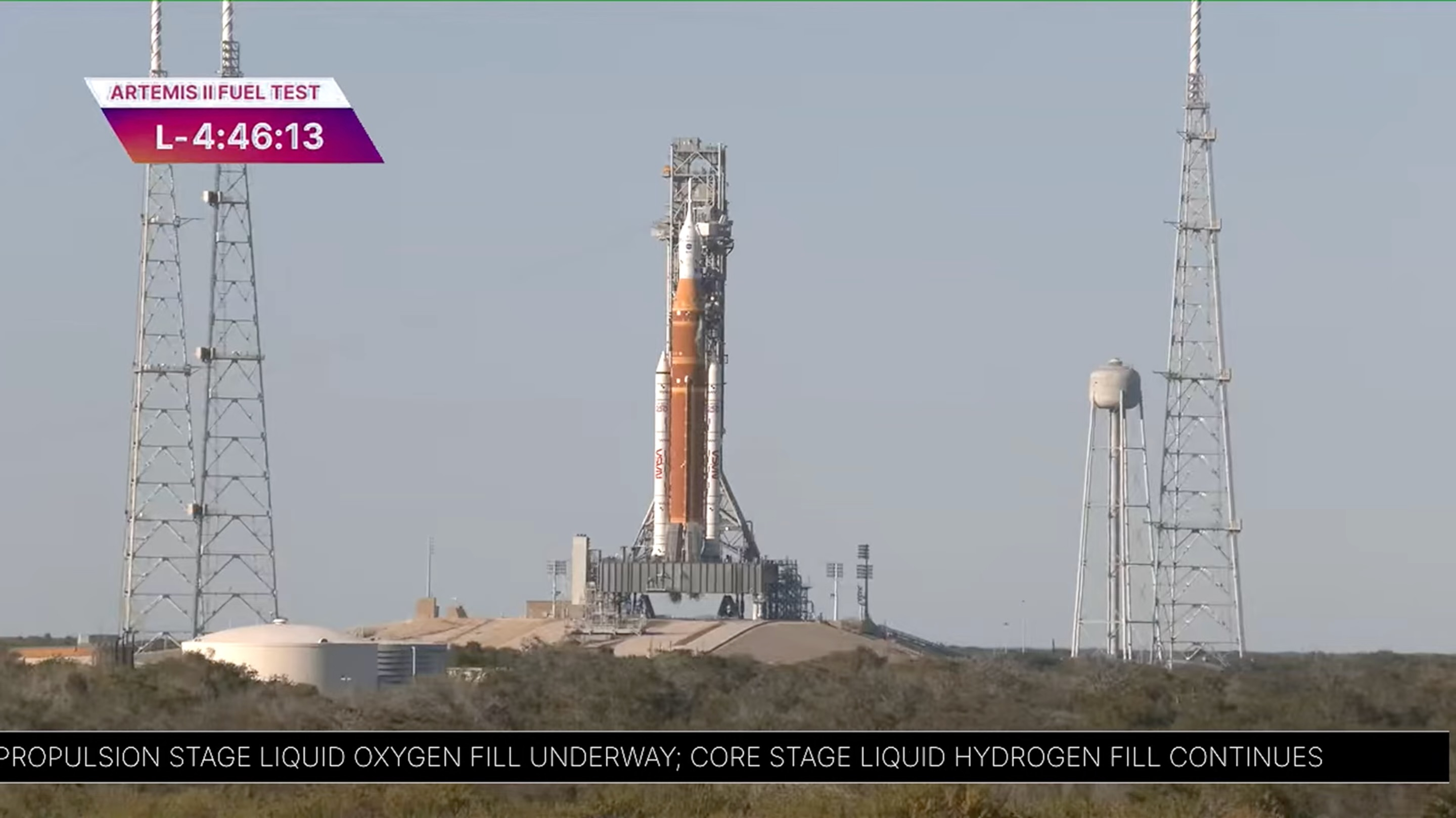'Apollo 11' Featurette Explores Technological Leaps of Filmmakers
This is where they found those rare shots.
The Apollo 11 moon mission still invites technological risk 50 years later. Filmmakers are running precious archival film through a scanner to bring a new documentary to audiences, a new featurette reveals.
"Apollo 11" (CNN Films and Statement Pictures), which was released in theaters everywhere starting March 8, comes in large part from 65-millimeter and 70-mm film preserved at the National Archives, as well as 18,000 hours of audio that was largely uncataloged before the documentary's creation.
"Certainly, being a fan of the large-format films of the '50s and '60s that were told in the direct-cinema style, that's what I wanted to do with Apollo 11," says director Todd Douglas Miller in the featurette about the making of the film. One thing that amazed him about the new footage was the emotion on the astronauts' faces, symbolizing the weight of the task they were about to take on, he said.
Related: Eleven hidden space-history details in new documentary 'Apollo 11'
But bringing this to the public required taking the archival film and replicating it carefully, in a way that wouldn't require the filmmakers to handle the precious reels. The documentary team ran the reels through an experimental scanner to convert the footage to modern-day 8K and 16K resolution, suitable for a theater release.
The 65-mm film had little "bursts" of imagery every 3 to 4 seconds, Douglas Miller added, while the 70-mm film was a more difficult format to work with, since it's rare — it was most often used for government productions.
"We were running the most important film on the world on a scanner that was a prototype. It was inspiring and terrifying," Will Cox, the CEO and founder of post-production company Final Frame, says in the featurette.
Breaking space news, the latest updates on rocket launches, skywatching events and more!
But once his team viewed the film, they were amazed at the rare shots of the launch preparations and launch itself. "We were all dumbstruck immediately at how beautiful the cinematography was," he said.
The documentary follows the Apollo 11 crew's journey to the moon in July 1969 — 50 years ago this year — as NASA capped the famous space race with the Soviet Union by sending people to the moon first. Less than a decade before, the Soviet Union's Yuri Gagarin became the first person to fly into space. But in 1969, NASA was poised to accomplish the incredible feat of bringing astronauts Neil Armstrong and Buzz Aldrin to the lunar surface in a delicate lander called the lunar module. Their other crewmate, Michael Collins, remained in orbit in the sturdier (yet still small) command module.
The feature-length film received critical acclaim at the 2019 Sundance Film Festival and premiered in IMAX format for one week only, between March 1 and 7.
- Astronauts Reflect on Apollo 11 Legacy in 'First Man' Featurette
- Apollo 11 Moon Landing Pictures
- Watch NASA's Apollo 11 Moonwalk Moments in This Archive Video
Follow Elizabeth Howell on Twitter @howellspace. Follow us on Twitter @Spacedotcom and on Facebook.

Elizabeth Howell (she/her), Ph.D., was a staff writer in the spaceflight channel between 2022 and 2024 specializing in Canadian space news. She was contributing writer for Space.com for 10 years from 2012 to 2024. Elizabeth's reporting includes multiple exclusives with the White House, leading world coverage about a lost-and-found space tomato on the International Space Station, witnessing five human spaceflight launches on two continents, flying parabolic, working inside a spacesuit, and participating in a simulated Mars mission. Her latest book, "Why Am I Taller?" (ECW Press, 2022) is co-written with astronaut Dave Williams.
